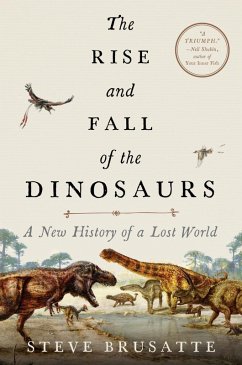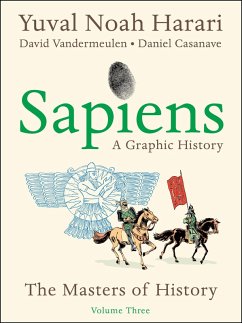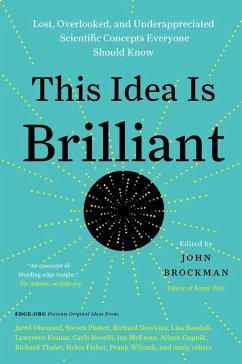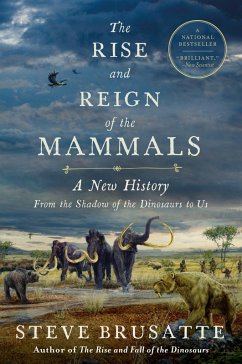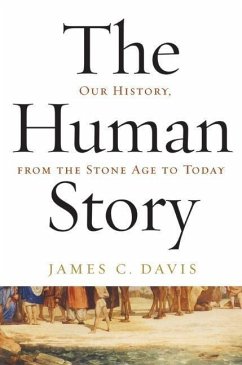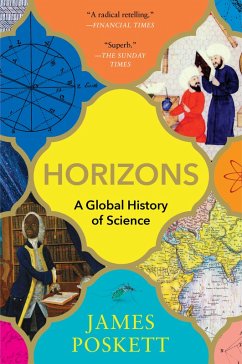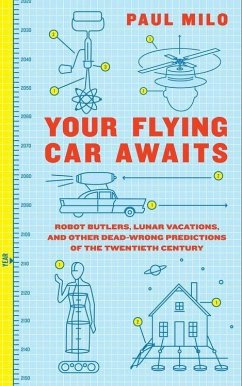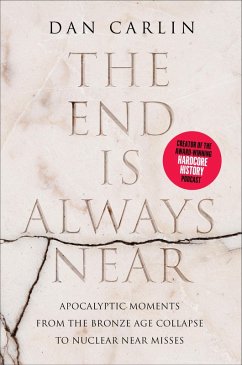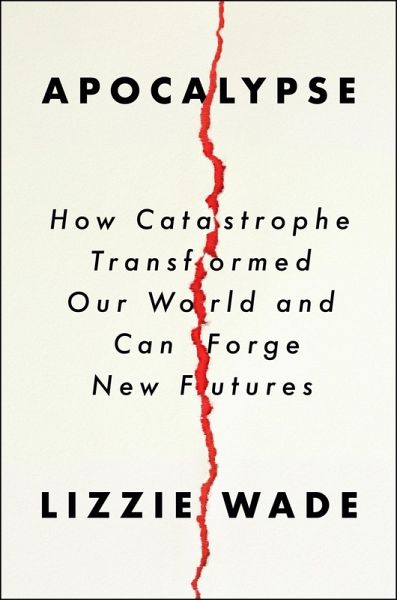
Apocalypse (eBook, ePUB)
How Catastrophe Transformed Our World and Can Forge New Futures
Versandkostenfrei!
Sofort per Download lieferbar
21,79 €
inkl. MwSt.
Weitere Ausgaben:

PAYBACK Punkte
0 °P sammeln!
A NEW YORKER BEST BOOK OF THE YEAR A Next Big Idea Club Must-Read Book of May 2025 • A Publishers Weekly Most Anticipated History Book of the Year • A The Millions Most Anticipated Spring Book of the YearA richly imagined new view on the great human tradition of apocalypse, from the rise of Homo sapiens to the climate instability of our present, that defies conventional wisdom and long-held stories about our deep past to reveal how cataclysmic events are not irrevocable endings, but transformations. Perfect for fans of Sapiens or The Dawn of Everything. A drought lasts for decades, a...
A NEW YORKER BEST BOOK OF THE YEAR A Next Big Idea Club Must-Read Book of May 2025 • A Publishers Weekly Most Anticipated History Book of the Year • A The Millions Most Anticipated Spring Book of the Year
A richly imagined new view on the great human tradition of apocalypse, from the rise of Homo sapiens to the climate instability of our present, that defies conventional wisdom and long-held stories about our deep past to reveal how cataclysmic events are not irrevocable endings, but transformations. Perfect for fans of Sapiens or The Dawn of Everything. A drought lasts for decades, a disease rips through a city, a civilization collapses. When we finally uncover the ruins, we ask: What happened? The good news is, we've been here before. History is long, and people have already confronted just about every apocalypse we're facing today. But these days, archaeologists are getting better at seeing stories of survival, transformation, and even progress hidden within those histories of collapse and destruction. Perhaps, we begin to see, apocalypses do not destroy worlds, but create them anew. Apocalypse offers a new way of understanding human history, reframing it as a series of crises and cataclysms that we survived, moments of choice in an evolution of humanity that has never been predetermined or even linear. Here Lizzie Wade asks us to reckon with our long-held narratives of these events, from the end of Old Kingdom Egypt, the collapse of the Classic Maya, to the Black Death, and shows us how people lived through and beyond them-and even considered what a new world could look like in their wake. The more we learn about apocalypses past, the more hope we have that we will survive our own. It won't be pleasant. It won't be fair. The world will be different on the other side, and our cultures and communities-perhaps even our species-will be different too. "Lizzie Wade is an exceptional journalist and a master storyteller. She reminds us that survival always has been, and still is, possible, and that our world always has been, and still is, a choice." -Ed Yong, author of An Immense World "This book upended my understanding of the ancient world. Wade renders our deep past in vivid prose, showing us that times of great rupture also bring great possibilities for new ways of living, if we let them. Apocalypse is the best kind of history book: vibrant and vital." -Zoë Schlanger, author of The Light Eaters
A richly imagined new view on the great human tradition of apocalypse, from the rise of Homo sapiens to the climate instability of our present, that defies conventional wisdom and long-held stories about our deep past to reveal how cataclysmic events are not irrevocable endings, but transformations. Perfect for fans of Sapiens or The Dawn of Everything. A drought lasts for decades, a disease rips through a city, a civilization collapses. When we finally uncover the ruins, we ask: What happened? The good news is, we've been here before. History is long, and people have already confronted just about every apocalypse we're facing today. But these days, archaeologists are getting better at seeing stories of survival, transformation, and even progress hidden within those histories of collapse and destruction. Perhaps, we begin to see, apocalypses do not destroy worlds, but create them anew. Apocalypse offers a new way of understanding human history, reframing it as a series of crises and cataclysms that we survived, moments of choice in an evolution of humanity that has never been predetermined or even linear. Here Lizzie Wade asks us to reckon with our long-held narratives of these events, from the end of Old Kingdom Egypt, the collapse of the Classic Maya, to the Black Death, and shows us how people lived through and beyond them-and even considered what a new world could look like in their wake. The more we learn about apocalypses past, the more hope we have that we will survive our own. It won't be pleasant. It won't be fair. The world will be different on the other side, and our cultures and communities-perhaps even our species-will be different too. "Lizzie Wade is an exceptional journalist and a master storyteller. She reminds us that survival always has been, and still is, possible, and that our world always has been, and still is, a choice." -Ed Yong, author of An Immense World "This book upended my understanding of the ancient world. Wade renders our deep past in vivid prose, showing us that times of great rupture also bring great possibilities for new ways of living, if we let them. Apocalypse is the best kind of history book: vibrant and vital." -Zoë Schlanger, author of The Light Eaters
Dieser Download kann aus rechtlichen Gründen nur mit Rechnungsadresse in A, B, BG, CY, CZ, D, DK, EW, E, FIN, F, GR, HR, H, I, LT, L, LR, M, NL, PL, P, R, S, SLO, SK ausgeliefert werden.




